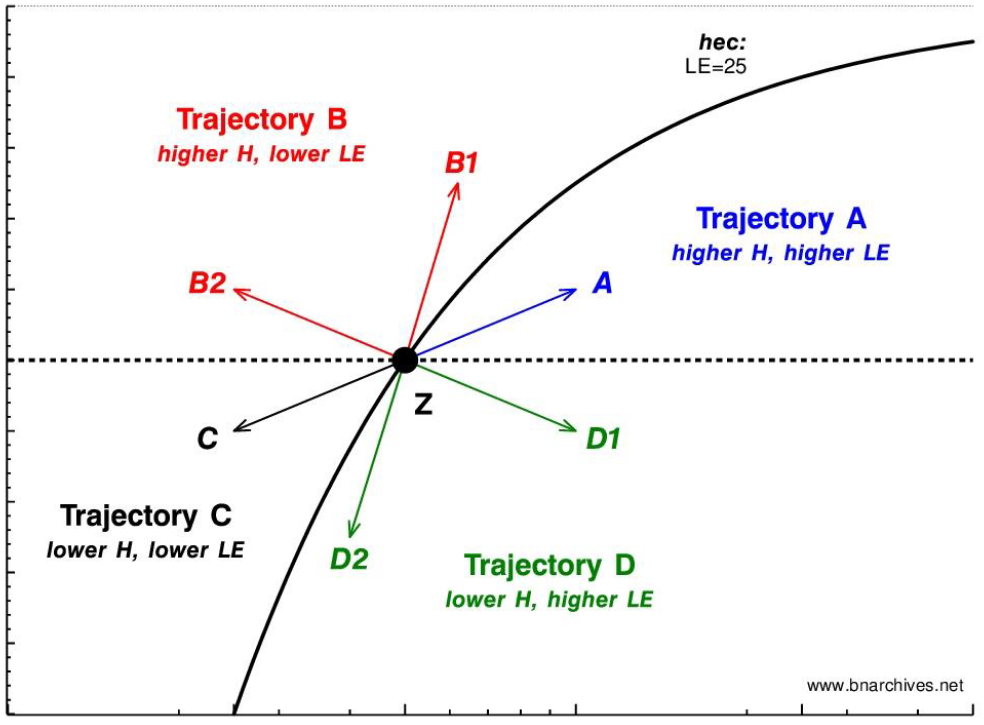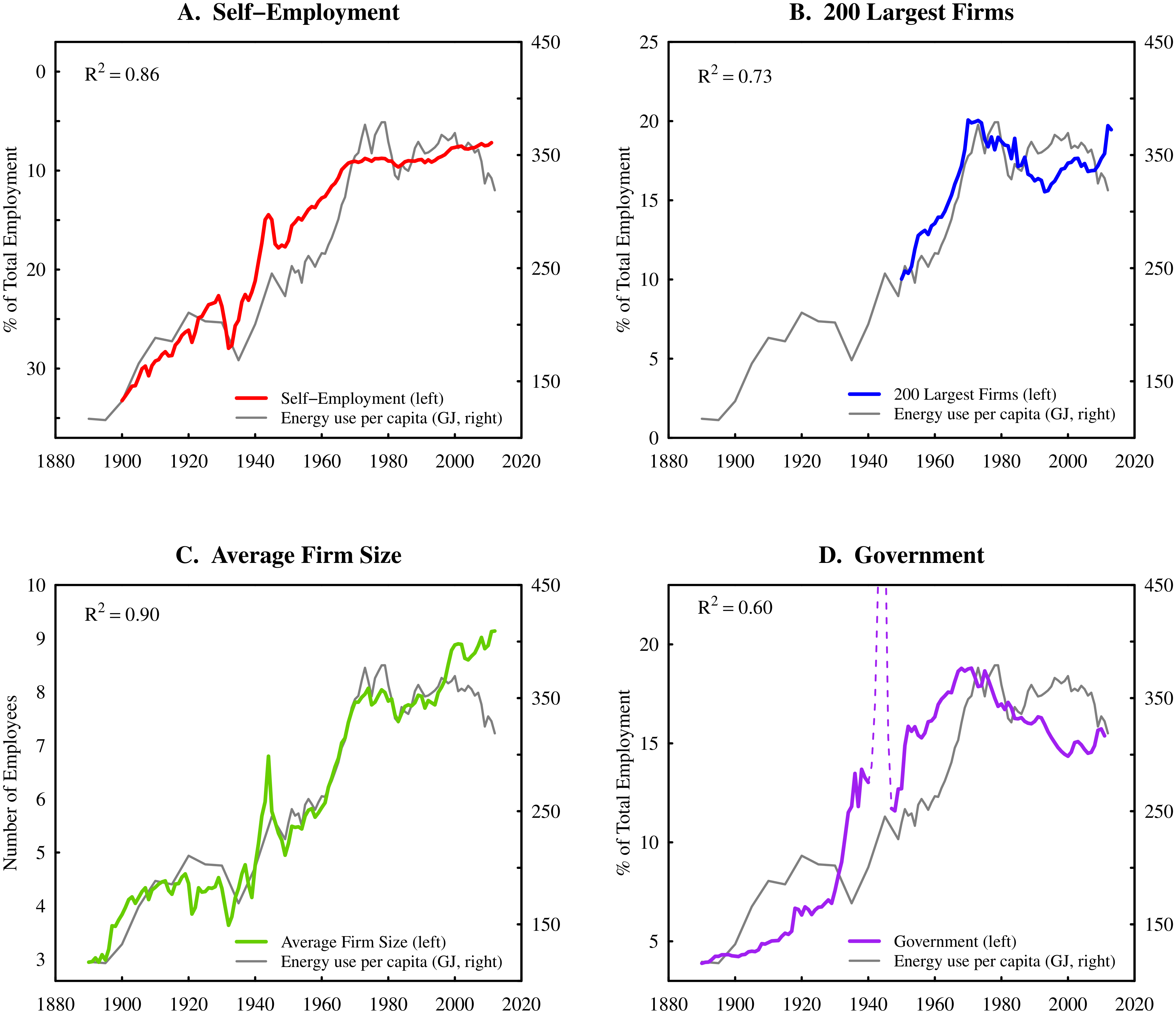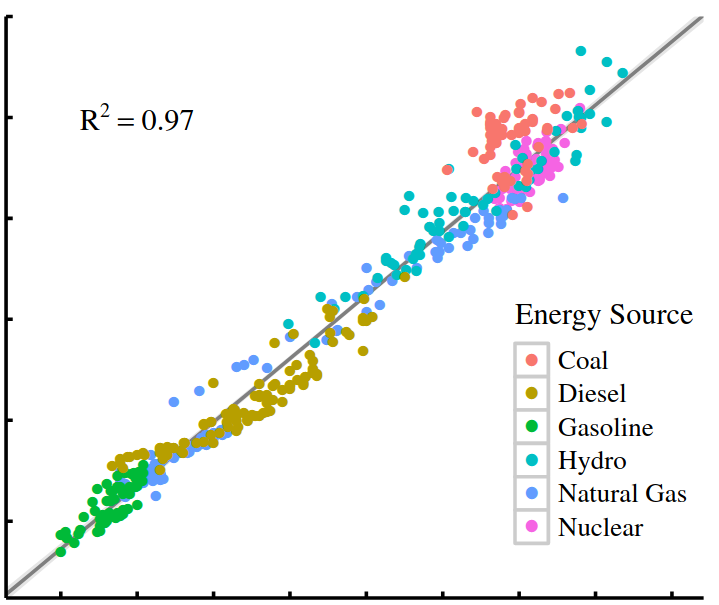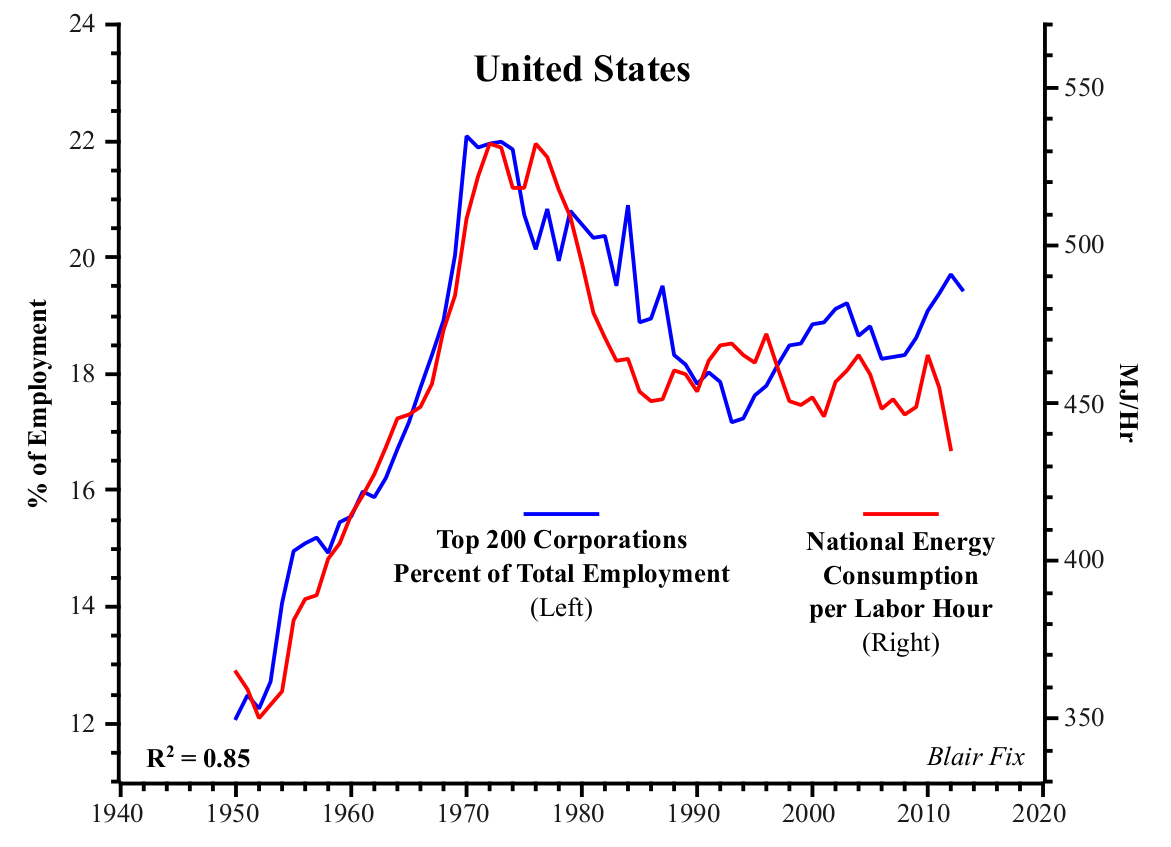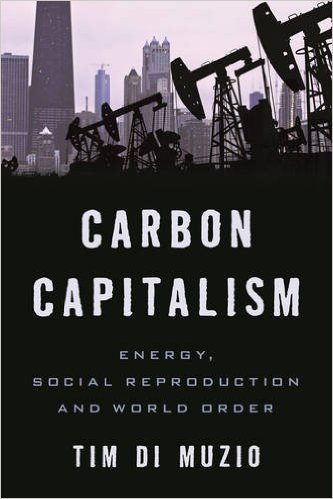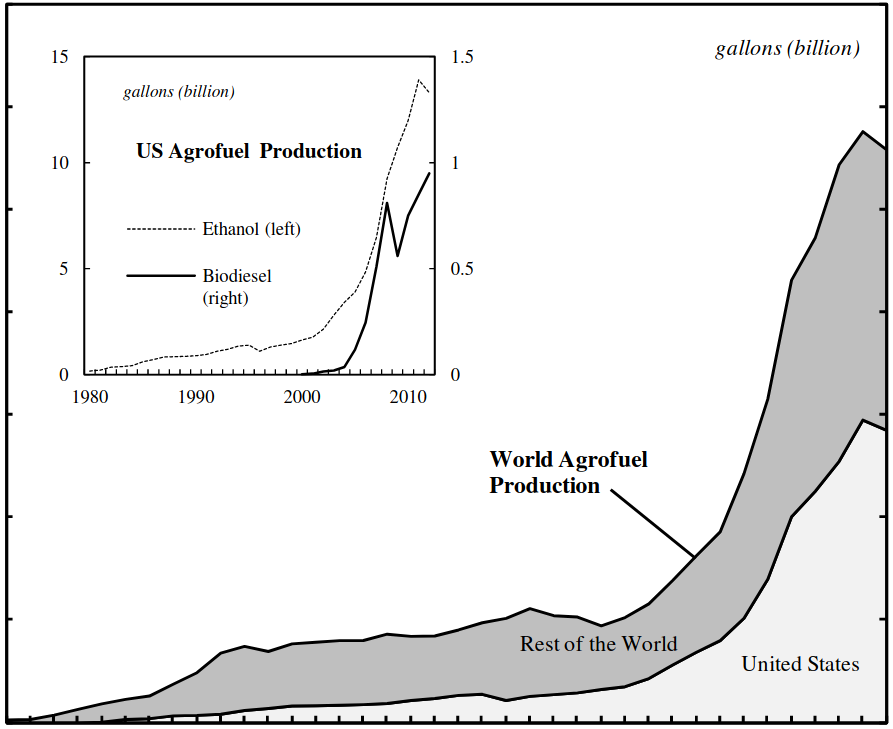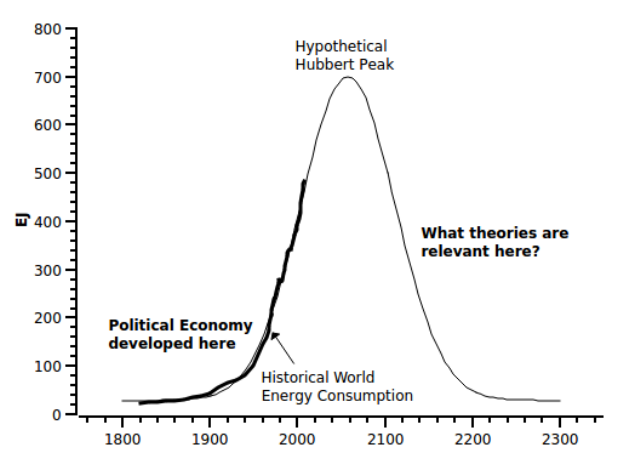Abstract According to the theory of capital as power, capitalism, like any other mode of power, is born through sabotage and lives in chains – and yet everywhere we look we see it grow and expand. What explains this apparent puzzle of ‘growth in the midst of sabotage’? The answer, we argue, begins with the […]
Continue ReadingFix, ‘Energy and Institution Size’
Abstract Why do institutions grow? Despite nearly a century of scientific effort, there remains little consensus on this topic. This paper offers a new approach that focuses on energy consumption. A systematic relation exists between institution size and energy consumption per capita: as energy consumption increases, institutions become larger. I hypothesize that this relation results […]
Continue ReadingDi Muzio, ‘Energy, Capital as Power and World Order’
Abstract Until late, the subject of energy and its importance for capitalism and the constitution and reconstitution of world order has been sorely overlooked in the international political economy (IPE) literature. Indeed, only two of the major textbooks in IPE have chapters on energy. This is also true of the literature known as classical political […]
Continue ReadingNo. 2016/04: Fix, ‘Energy and Institution Size’
Abstract Why do institutions grow? Despite nearly a century of scientific effort, there remains little consensus on this topic. This paper offers a new approach that focuses on energy consumption. A systematic relation exists between institution size and energy consumption per capita: as energy consumption increases, institutions become larger. I hypothesize that this relation results […]
Continue ReadingNo. 2016/03: Di Muzio & Dow, ‘Uneven and Combined Confusion: On the Geopolitical Origins of Capitalism and the Rise of the West’
Abstract This article offers a critique of Alexander Anievas and Kerem Nişancioğlu’s How the West Came to Rule: The Geopolitical Origins of Capitalism. We argue that while all historiography features a number of silences, shortcomings or omissions, the omissions in How the West Came to Rule lead to a mistaken view of the emergence of […]
Continue ReadingPutting Power Back into Growth Theory
Putting Power Back Into Growth Theory BLAIR FIX June 2015 Abstract Neoclassical growth theory assumes that economic growth is an atomistic process in which changes in distribution play no role. Unfortunately, when this assumption is tested against real-world evidence, it is systematically violated. This paper argues that a reality-based growth theory must reject neoclassical principles […]
Continue ReadingDi Muzio, ‘Carbon Capitalism: Energy, Social Reproduction and World Order’
Abstract Modern civilization and the social reproduction of capitalism are bound inextricably with fossil fuel consumption. But as carbon energy resources become scarcer, what implications will this have for energy-intensive modes of life? Can renewable energy sustain high levels of accumulation? Or will we witness the end of existing capitalist economies? This book provides an […]
Continue ReadingFix, ‘Putting Power Back Into Growth Theory’
Abstract Neoclassical growth theory assumes that economic growth is an atomistic process in which changes in distribution play no role. Unfortunately, when this assumption is tested against real-world evidence, it is systematically violated. This paper argues that a reality-based growth theory must reject neoclassical principles in favour of a power-centered approach. Building on Nitzan and […]
Continue ReadingBaines, ‘Price and Income Dynamics in the Agri-Food System: A Disaggregate Perspective’
Abstract This dissertation seeks to illuminate contemporary processes of redistribution in the agri-food sector, with particular reference to the US. It addresses the following questions: How has the rapid rise in food price instability since the turn of the twenty-first century impacted income shifts within the agri-food system? Which groups within agriculture and agribusiness benefit […]
Continue ReadingNo. 2014/05: Fix, ‘Putting Power Back Into Growth Theory’
Abstract Neoclassical growth theory assumes that economic growth is an atomistic process in which changes in distribution play no role. Unfortunately, when this assumption is tested against real-world evidence, it is systematically violated. This paper argues that a reality-based growth theory must reject neoclassical principles in favour of a power-centered approach. Building on Nitzan and […]
Continue ReadingNo. 2014/03: Baines, ‘The Ethanol Boom and the Restructuring of the Food Regime’
Abstract The agrofuel boom has brought about some of the most significant transformations in the world food system in recent decades. A rich and diverse body of agrarian political economy research has emerged that elucidates the conflicts and redistributional shifts engendered by these transformations. However, hitherto this point, less attention has been given to differences […]
Continue ReadingFix, ‘Human Activity, Energy & Money in the United States’
Abstract There is no consensus, in political economy, about the exact relationship between the biophysical and the pecuniary spheres. This paper enters into the debate by asking the following question: how can a biophysical approach to political economy be used to gain insight into the complex interrelationship between the biophysical sphere of economic activity and […]
Continue Reading
